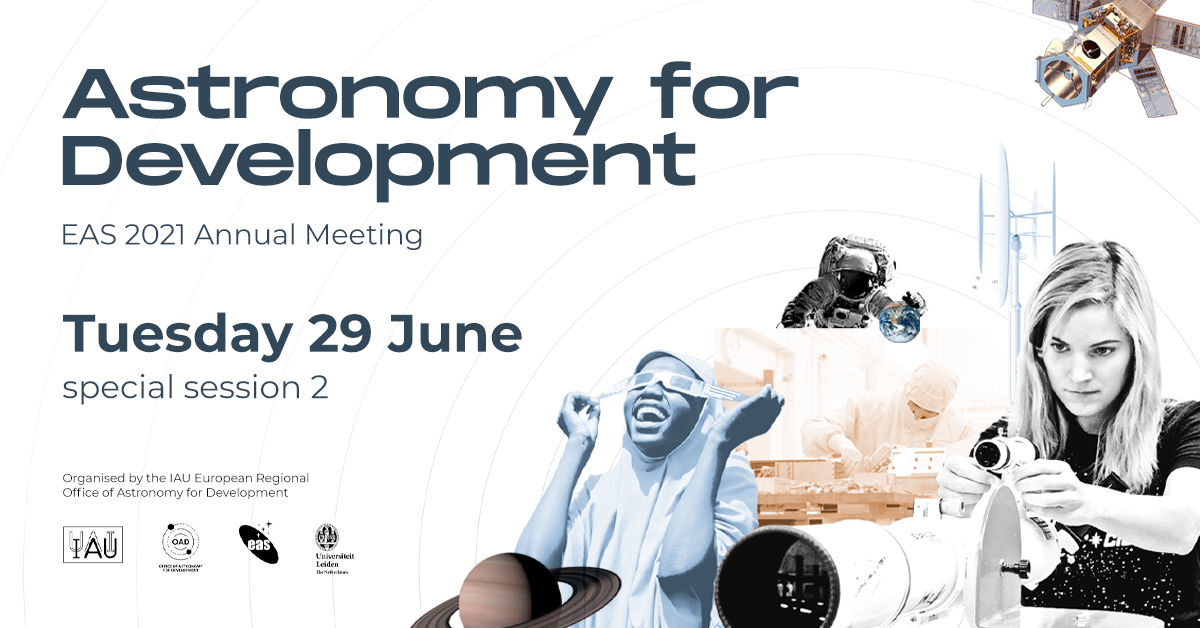EAS Annual Meeting 2021
There will be a special session about Astronomy for Development during the virtual EAS Annual Meeting 2021, focusing on the IAU OAD activities and the contribution of astronomy to the UN SDGs.

Aims and scope of the session
- Expand the astronomy for development community to work on sustainable development in Europe and globally.
- Present current astronomy for development activities and opportunities in Europe.
- Discuss the future of astronomy for development in Europe and what we can learn from existing initiatives.
The IAU European Regional Office of Astronomy for Development (E-ROAD) was established at Leiden in 2018 as a partnership between the EAS and Leiden University. It is part of a global network of 11 regional offices of Astronomy for Development the IAU has set up in the past decade, to use astronomy as a tool for international development. Because of its links with various sciences, cutting-edge technology, but also culture and philosophy, astronomy can contribute uniquely to help stimulate sustainable development and specifically, the UN Sustainable Development Goals (SDGs). There are many different ways to employ astronomy skills, facilities and knowledge for socio-economic development. The global IAU astronomy for development network has extensive experience that we can learn from and build on.
The E-ROAD focuses on contributing to the SDGs in Europe, as well as connecting with the sister offices across the world and sharing expertise and resources. The activities of the European office will be highlighted, including the global education project Pale Blue Dot that promotes global citizenship in young children, to encourage solidarity and raise environmental awareness. Besides, the E-ROAD has set up a twinning programme between astronomy departments worldwide to stimulate capacity building. This programme will start in 2021 as a collaboration between Leiden and Armenia, Colombia, Ethiopia and Nigeria through Erasmus+ ICM grants. Finally, the EU project SKIES has started, focusing on open science, social innovation and entrepreneurship for astronomy PhD students. In this session, the astronomy community has the opportunity to discuss the future direction of the European office and learn how to become involved.
Programme
This special session will take place on 29 June 2021 and will consist of three 90-minute blocks, each with a different focus:
- Block 1: Activities of the OAD network globally and in Europe
- Block 2: Contributions of astronomy to SGD4.7 global citizenship education and peaceful societies & SDG13.3 climate change awareness, while safeguarding SDG5 gender and SDG10 reduced inequalities.
- Block 3: Contributions of astronomy to SDG8 and SDG9.b, including human capacity building, research capacity, and technology transfer for societal benefit.
You can read more and register for the conference here.

